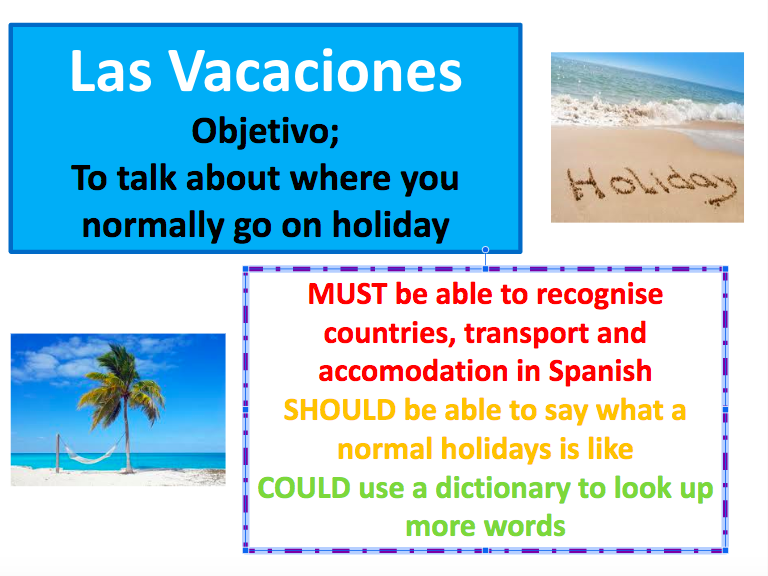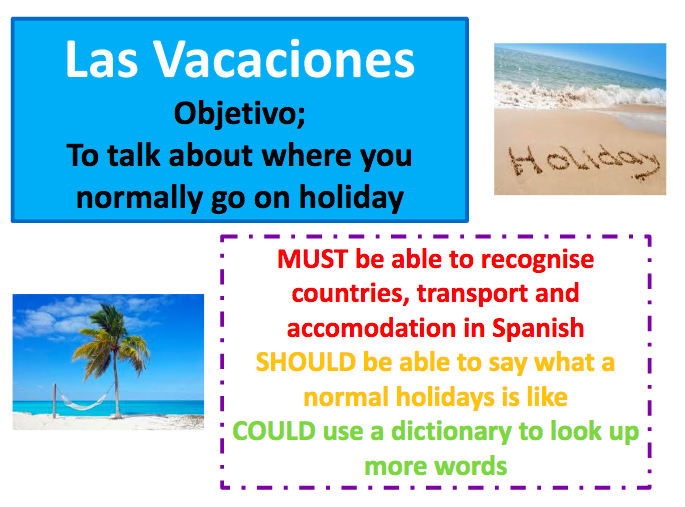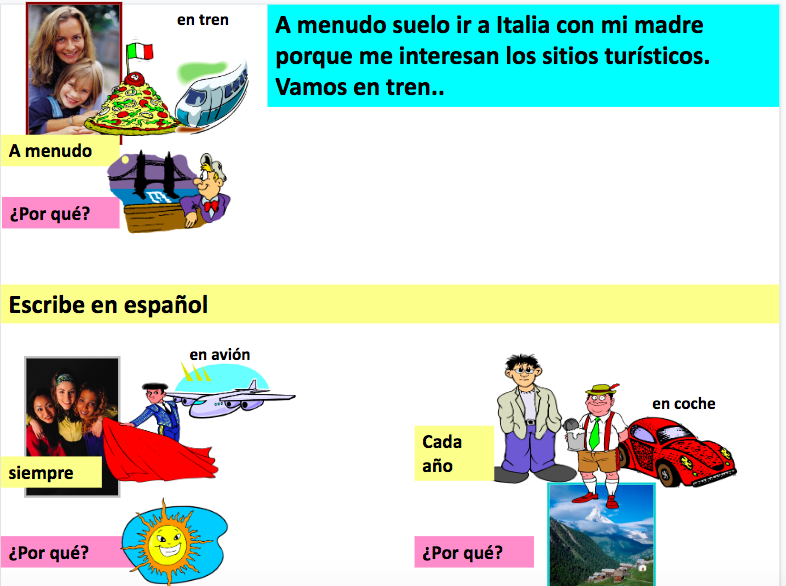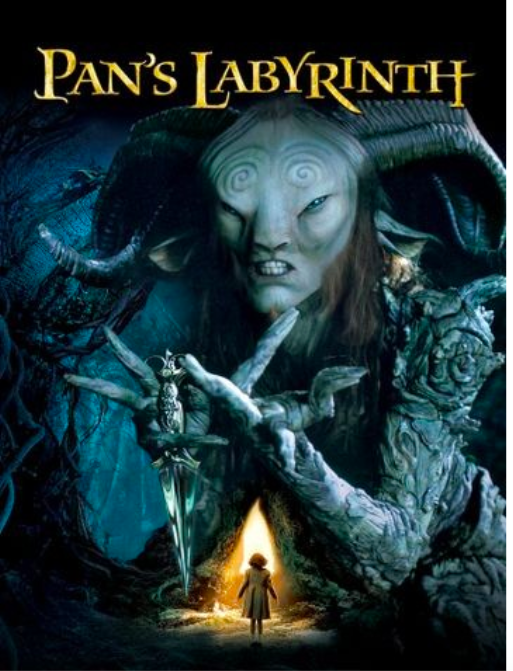10 Spanish 2
Section outline
-
LAS VACACIONES
Bienvenidos 2020 Clase Y10 Español
This Year we will be having 2 assessments.
For term 1 our focus will be Holidays- Vacaciones
All the resources you can find them in Google classroom.
1. To be able to write about where you go on holiday, who with and how you get there
2. To talk about where you normally go on holiday
3. To be able to recognise countries, transport and accommodation in Spanish
4. To be able to talk extensively about where you usually go, with whom, how you get there, what the place is like, what you can do there and what you usually do
5. To be able to ask other people about their holidays
6. To be able to say what a normal holidays is like
ActivitiesGoogle classroom
-
I will be able to say where I go on holiday.
I will be able to use opinions and justifications to describe where I go on holiday.
I will be able to write a paragraph about where I go on holiday, how I get there and who with.
-
This week focus is To be able to write about where you go on holiday, who with and how you get there
We will use frequency phrases
Connectives
Opinions
Justifications
Verbs


-

Communication, Language Knowledge and Cultural Knowledge, levels 3 and 4
At these levels, students can understand and construct simple text using their knowledge of Spanish. Students can describe aspects of their own background and immediate environment.
In selected linguistic and sociocultural contexts, students will: For example, students might: - understand and produce information and ideas;
- make comparisons between texts (noting similarities and differences);
- express and respond to personal needs and interests;
- choose the place they like best and give reasons why;
- use cultural knowledge to communicate appropriately;
- construct a similar example using information about a place in New Zealand;
- recognise and describe ways in which Spanish is organised;
- be introduced to a variety of language and sentence patterns, e.g., tambien … por eso …, bares que estan abiertos ... un parque natural donde se puede, … in the context of two- or three-clause sentences;
- compare and contrast languages;
- look at the difference between jugar, practicar, and tocar when talking about activities;
- recognise and describe ways in which Hispanic cultures are organised;
- recognise masculine and feminine articles and nouns and adjective agreements;
- compare and contrast cultural practices.
- discuss possible reasons why jogging is not a Hispanic activity and that bullfighting is not part of New Zealand culture.
-

Communication, Language Knowledge and Cultural Knowledge, levels 3 and 4
At these levels, students can understand and construct simple text using their knowledge of Spanish. Students can describe aspects of their own background and immediate environment.
In selected linguistic and sociocultural contexts, students will: For example, students might: - understand and produce information and ideas;
- make comparisons between texts (noting similarities and differences);
- express and respond to personal needs and interests;
- choose the place they like best and give reasons why;
- use cultural knowledge to communicate appropriately;
- construct a similar example using information about a place in New Zealand;
- recognise and describe ways in which Spanish is organised;
- be introduced to a variety of language and sentence patterns, e.g., tambien … por eso …, bares que estan abiertos ... un parque natural donde se puede, … in the context of two- or three-clause sentences;
- compare and contrast languages;
- look at the difference between jugar, practicar, and tocar when talking about activities;
- recognise and describe ways in which Hispanic cultures are organised;
- recognise masculine and feminine articles and nouns and adjective agreements;
- compare and contrast cultural practices.
- discuss possible reasons why jogging is not a Hispanic activity and that bullfighting is not part of New Zealand culture.
-

Second class as I promised we will be watching the Spanish movie, El Laberinto del Fauno

